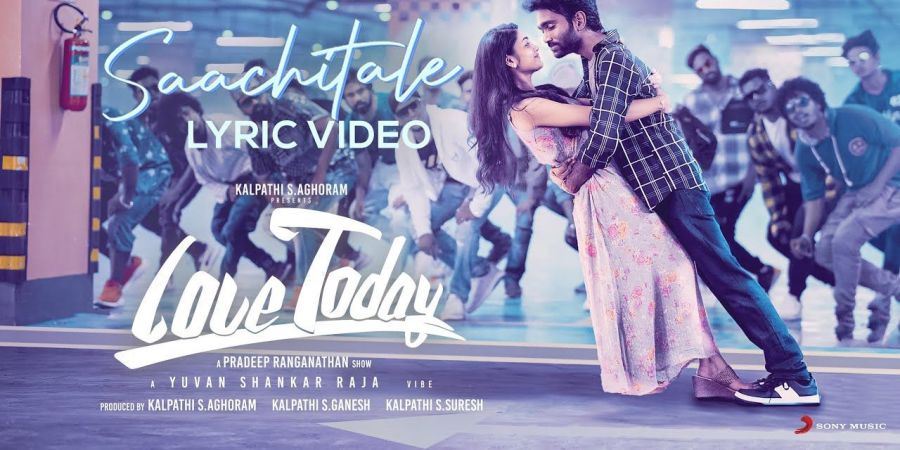

Ever feel like you genuinely know someone? Isn't there always a part of ourselves that we keep hidden from the world? Any relationship must be built on trust, which is also what keeps a romantic one together. But how much do you really want to believe? Perhaps you know your spouse a little too well. However, there is always a desire to learn more, which can occasionally border on misplaced trust. Aren't we all victims of ignorance in the era of smartphones? In Pradeep Ranganathan's novel Love Today, this desire to know more manifests as a dramatic plot aspect. Nevertheless, I fervently contend that his short film, on which this movie is based, was the superior one.
We notice a boy.savouring the mango's luscious juice in the first sequence, which concludes with the boy sowing a seed and seeing it grow into a mature tree. A footage of a smartphone being made in a lab before it is sold in stores is cut to. Now, when a customer asks for the smartphone, we see it lying in the store waiting to be taken. Only now do we get to glimpse the man's face after the consumer opens the selfie camera. The concept behind planting the "seed" of Love Today appealed to me. Uthaman Pradeep (Pradeep Ranganathan) is the man, and the smartphone is a present for Nikita (Ivana), his lover. The movie begins when Nikita's father Venu Sastri (Sathyaraj, who portrays Cupid but actually acts as a matchbreaker) enters the scene. Sastri will only agree to their marriage if they are willing to put it to the test by trading phones for a day. You understand the gist of what occurs. Old fires rekindle, and scars from the past are rekindled. Love Today shares a concept level with Pradeep's first film, Comali, which is pulpy. Regarding the former, I had stated in my review that Comali had a crazy idea that required both better writing and staging. The writing is sloppy, which is matched by Pradeep's clever technique for drawing laughter out of mundane situations.Love Today is entertaining to watch when it gets going, which is in the first half, and is supported by an upbeat score by Yuvan Shankar Raja. This movie serves as an illustration of formless scripting that is punctuated by a variety of sequences that are so absurd that you end up enjoying them. Even the prose
